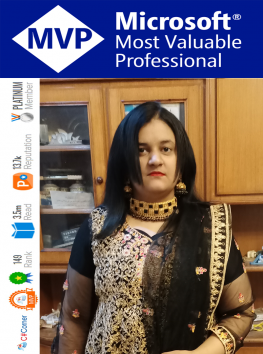Asma Khalid is not just a name but a beacon of inspiration for many. Known for her work in various fields, she has made significant contributions to understanding children's issues and rights. Her journey from being a dedicated researcher to becoming a prominent figure in the realm of child advocacy is nothing short of remarkable. Through her efforts, Asma has shed light on crucial topics such as education, mental health, and societal impacts on young minds.
In this article, we delve into the heartwarming story of Asma Khalid’s family life and upbringing. By exploring her personal experiences and the environment that shaped her, we aim to provide a deeper insight into what drives her passion for children's welfare. This narrative will highlight how her background influences her professional endeavors, offering readers a comprehensive view of her multifaceted career and personal life.
The Foundations of Advocacy: Early Life Influences
Growing up, Asma Khalid was surrounded by an environment that nurtured curiosity and empathy. Her parents instilled in her a deep sense of responsibility towards society, particularly concerning the welfare of children. From a young age, she was encouraged to question societal norms and seek answers that could lead to positive change. This early exposure to social issues laid the foundation for her future endeavors in advocating for children's rights.
Asma's childhood was marked by a strong emphasis on education. Her family believed that knowledge was the key to empowerment and encouraged her to pursue academic excellence. This belief system propelled her to achieve a PhD in Sociology of Childhood, equipping her with the tools necessary to understand and address complex issues surrounding children. Her educational journey was not merely about acquiring degrees but about gaining insights that would later inform her work in policy-making and advocacy.
Moreover, her upbringing emphasized the importance of community involvement. Participating in local initiatives and volunteering activities allowed Asma to witness firsthand the challenges faced by children in different settings. These experiences were instrumental in shaping her perspective and reinforcing her commitment to creating a better world for future generations.
A Commitment to Understanding: Academic Contributions
Asma Khalid's academic pursuits have been pivotal in advancing the discourse on children's issues. Her research, primarily focused on the sociology of childhood, delves into the intricacies of intergenerational relations and the role of non-governmental organizations in daily life. Through her publications, she has provided valuable insights into how societal structures impact children's development and well-being.
Her work extends beyond theoretical analysis; it seeks practical solutions to improve children's lives. For instance, her study on the role of NGOs highlights their critical function in supporting children's rights and addressing gaps in governmental policies. By collaborating with various organizations, Asma has contributed to developing programs that enhance educational opportunities and mental health support for children.
Furthermore, her interest in women's issues complements her focus on children, recognizing the interconnectedness of these areas. By advocating for gender equality and empowering women, she aims to create a more equitable society where every child can thrive regardless of their background.
Building Bridges: Professional Achievements
Professionally, Asma Khalid has achieved numerous milestones that reflect her dedication to children's welfare. As a Board Certified General Psychiatrist specializing in Child and Adolescent Psychiatry, she brings a unique perspective to addressing mental health challenges faced by young individuals. Her fellowship at the University of Illinois further solidifies her expertise in this field, allowing her to contribute significantly to both clinical practice and academic research.
Her involvement with NPR and WBUR has provided a platform to discuss pertinent issues affecting children today. Whether reporting on the impact of government policies or analyzing educational trends, Asma ensures that children's voices are heard and considered in broader societal conversations. Her ability to communicate complex ideas in an accessible manner makes her a trusted source of information for many.
Beyond her professional roles, Asma remains committed to engaging with communities directly affected by the issues she addresses. By participating in public forums and discussions, she continues to bridge the gap between research and real-world application, ensuring that her work translates into tangible benefits for children everywhere.

